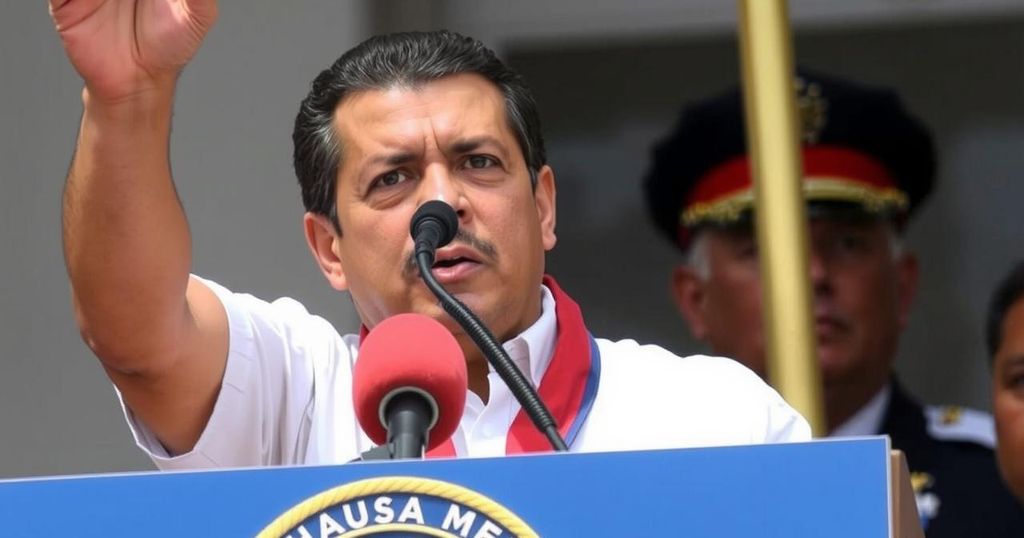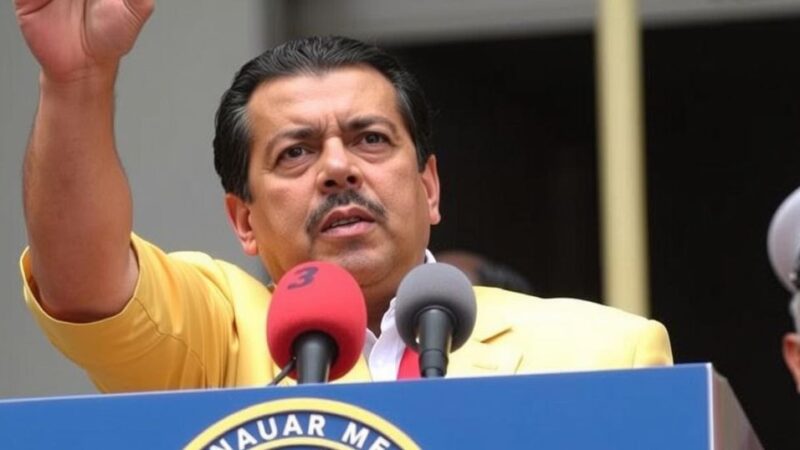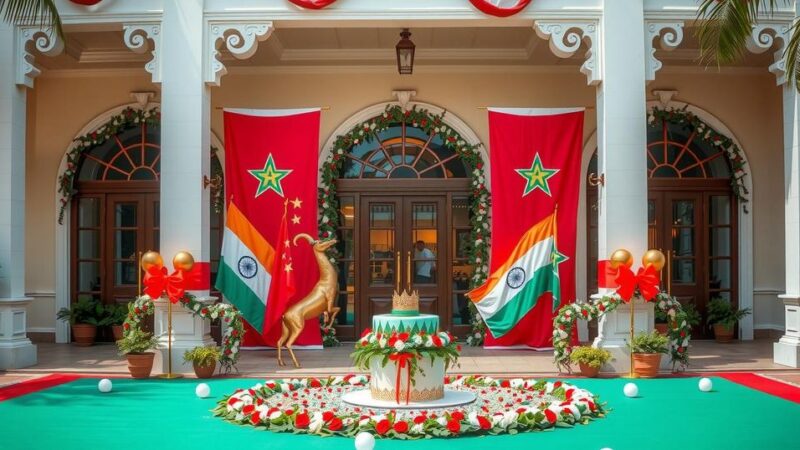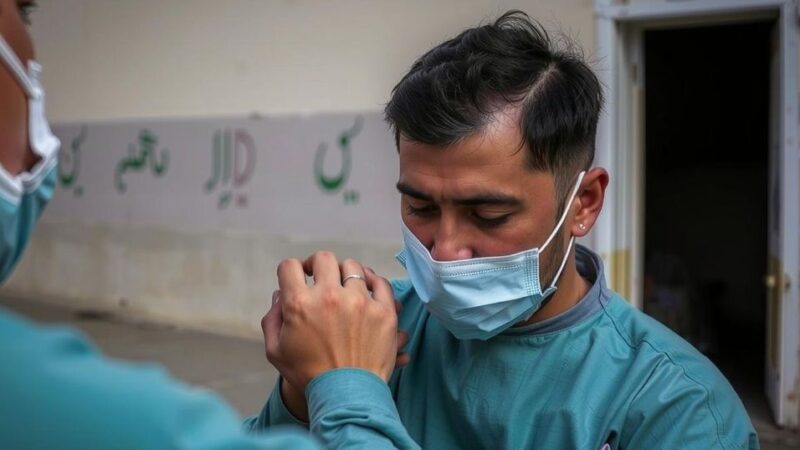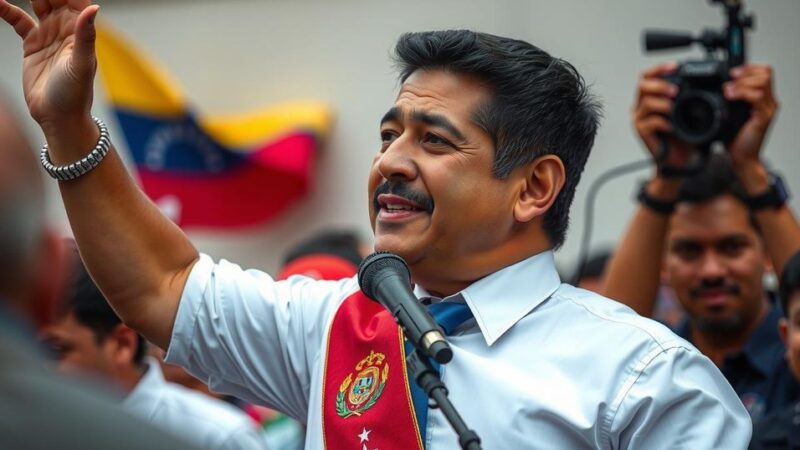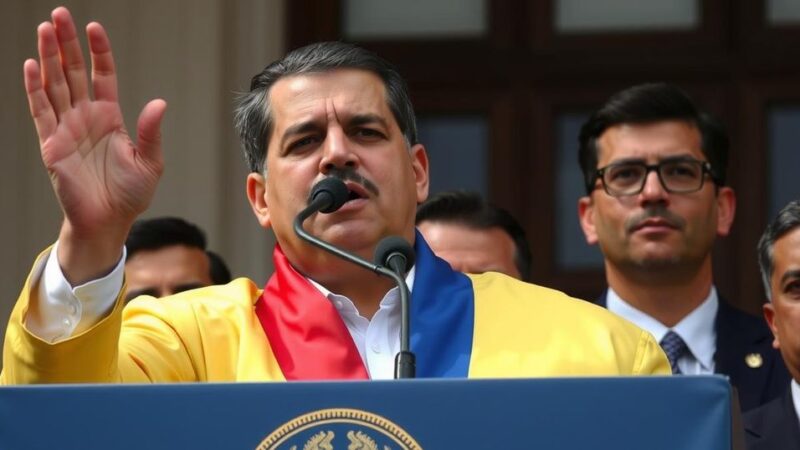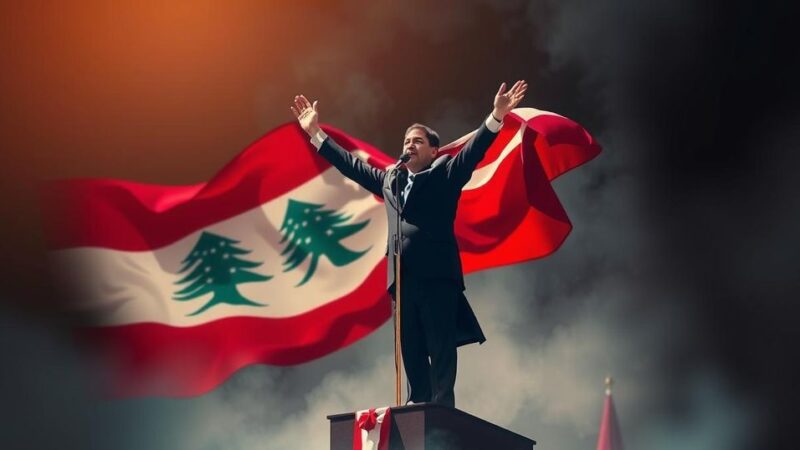Nicolás Maduro is set to be inaugurated for a third term despite allegations of fraud during the recent elections. Protests have erupted against his rule, highlighted by the detention of opposition leader María Corina Machado. The government denies wrongdoing amid international condemnation, and the legitimacy of the electoral process remains in question as Venezuelans grapple with ongoing political repression.
Nicolás Maduro, the President of Venezuela, is poised to reinforce his rule until 2031 as he prepares for his inauguration despite widespread allegations of electoral fraud. Recent protests in Caracas have underscored the growing discontent among citizens, sparked by credible claims of vote tampering favoring opposition candidate, Edmundo González. Security forces have aggressively suppressed dissenting voices; a notable incident involved the temporary detention of María Corina Machado, a key opposition figure, prompting international outrage.
In the wake of the July 28 election, the ruling party quickly declared Maduro the victor without disclosing detailed vote counts, in stark contrast to prior electoral practices. The opposition, claiming to have gathered voting data showing González received double the support of Maduro, faced a brutal crackdown. The Venezuelan government was condemned globally for its lack of transparency and the violent suppression of protests, resulting in thousands being arrested and numerous casualties reported.
Maduro’s administration has denied any wrongdoing, labeling reports of electoral fraud and violent suppression as misinformation. International observers, including the U.S.-based Carter Center, have validated the opposition’s electoral data. Despite this, Maduro continues to face scrutiny as global leaders and human rights organizations demand accountability and transparency regarding the electoral process. As the inauguration looms, it remains uncertain whether any prominent foreign dignitaries will attend, with Colombia’s President Gustavo Petro already announcing his absence in response to recent acts of repression against opposition members.
Venezuela has been in political turmoil, particularly under the administration of Nicolás Maduro, who has faced allegations of dictatorial practices and electoral fraud. The country’s economic decline has exacerbated social unrest, leading to widespread protests against government policies and alleged electoral misconduct. The recent election cycle escalated tensions, with significant claims that Maduro’s win was not legitimate, resulting in international condemnation and calls for democratic reforms. Opposition leaders have faced significant repression, limiting their ability to participate in the political landscape, ultimately fostering a climate of fear and violence against dissent.
In conclusion, Nicolás Maduro’s impending inauguration represents a continuation of his contentious and repressive rule, marked by significant allegations of electoral fraud and widespread public dissent. The opposition’s claims of a fraudulent election and the violent state response to protests highlight the deepening crisis in Venezuela’s political landscape. The international community’s reaction remains a critical factor in the ongoing struggle for democracy and human rights in the country. The situation continues to evolve, with the potential for further unrest as disillusioned citizens seek change.
Original Source: abcnews.go.com

